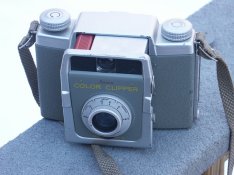- Joined
- Jul 5, 2010
- Messages
- 212
- Format
- 35mm
it would be ez to take this to another extreme and suggest that unless someone mixed their chemistry and emulsions from scratch, or coated their materials or used a large format camera they arent real photographers ...
Except this extreme is red herring.
There are two exposures when making the final photograph.
The first one is when making the negative, and the second one is when making the print.
With the negative, you control composition, exposure, DOF and other properties.
With the print, you control the final contrast, interpret the relations between darks and highlights, or you can go to the extreme and make surreal montages.
The first one haven't changed that much with the modern technology, while the 2nd is - for many modern photographers - nothing but pushing the buttons.
I download "nude packs", print them on a 3D printer and call them my work, there.
This has nothing to do with emulstion, chemistry etc.




